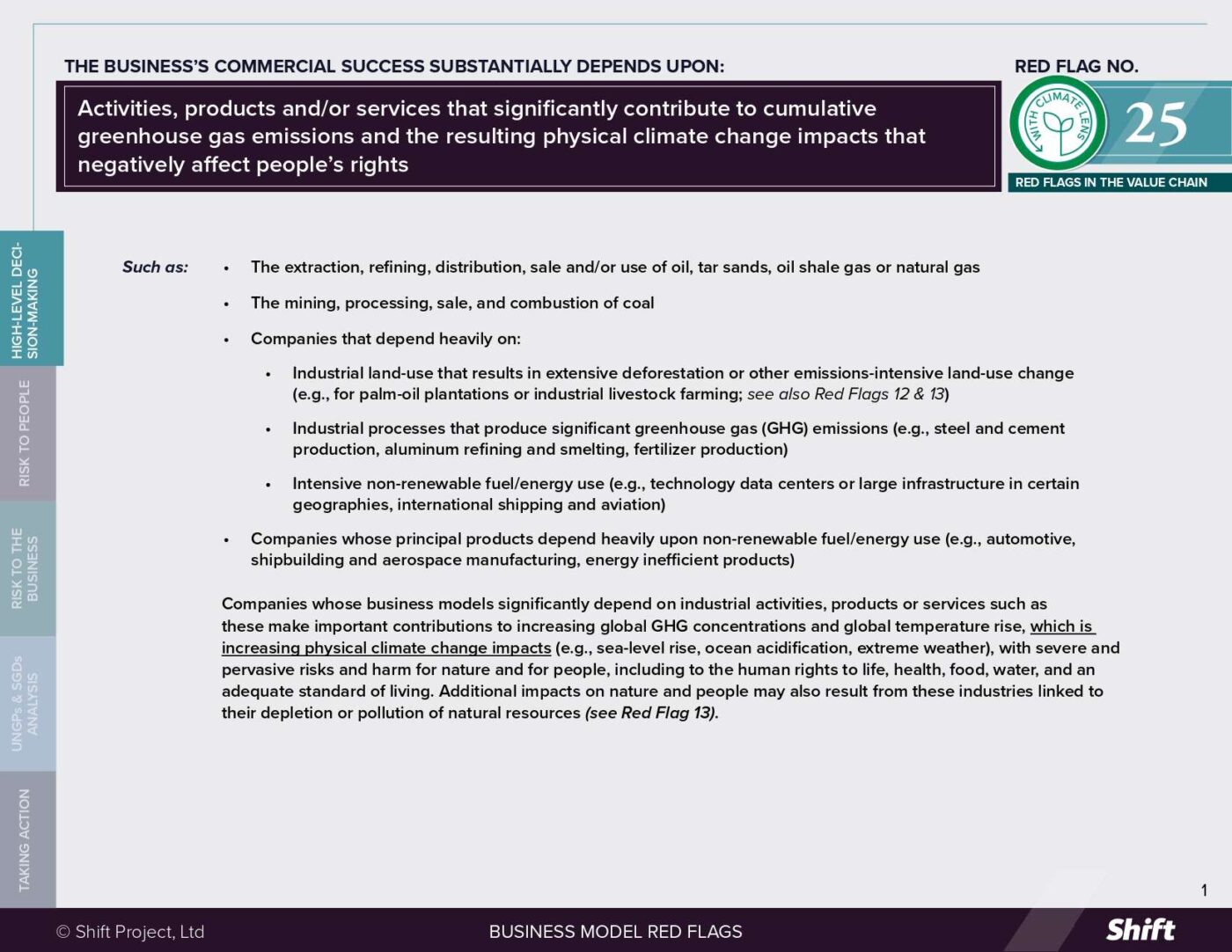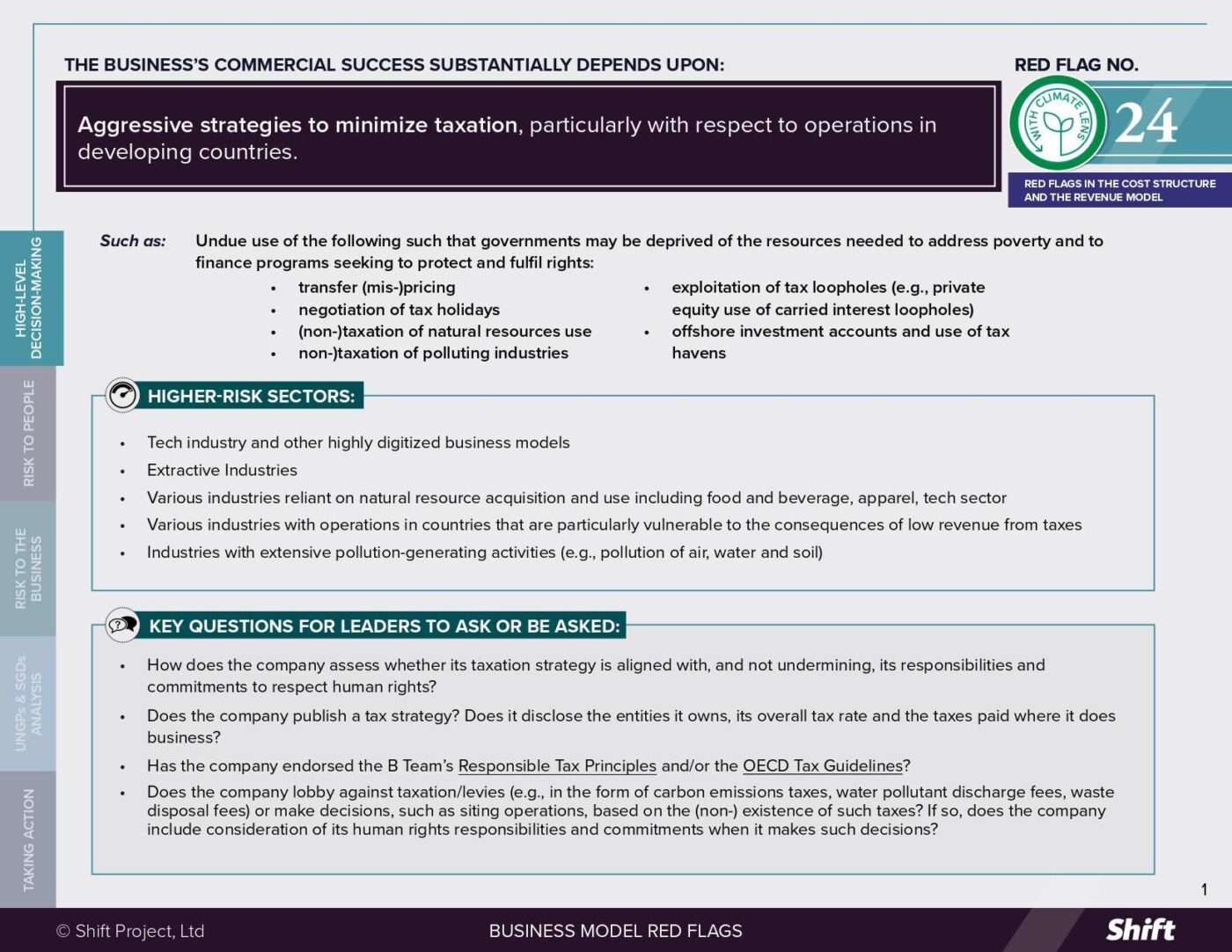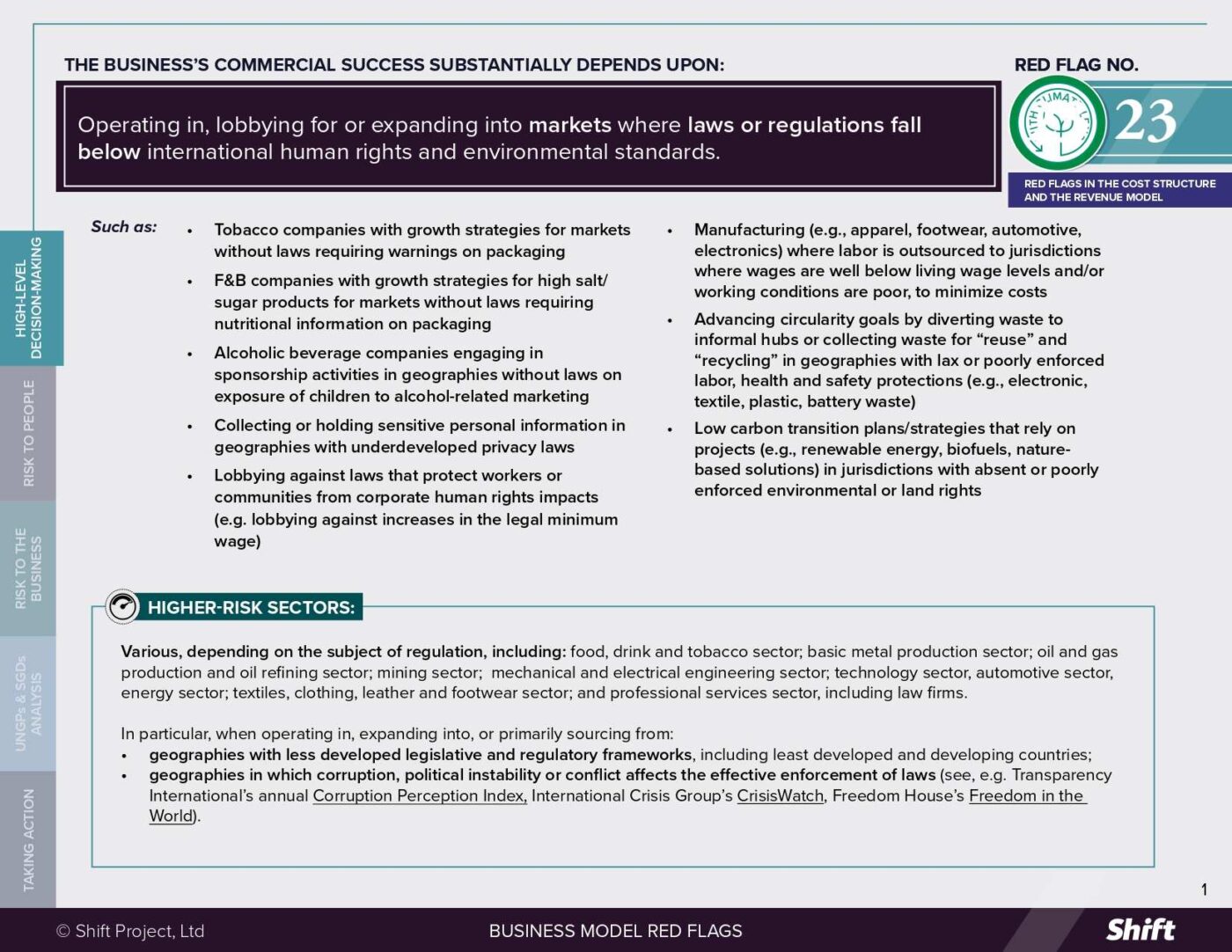The first step of human rights due diligence is assessing how the company’s operations and business relationships can pose risks to human rights. This means considering the negative human rights impacts that the company’s current or planned activities could have on individuals and communities. It also means considering negative impacts that could arise through any of a company’s business relationships in its value chain, such as suppliers, contractors, joint venture partners or business customers. The process should include both actual impacts that have happened as well as potential impacts – or what are often called “human rights risks.” Assessing impacts can be a challenging process. Identifying the company’s “salient” (or leading) human rights issues can provide a focus for the company’s efforts based on an evaluation of where the risks of harm to people may be most severe.
Learn more: see all our resource library listings below, as well as specific sections from these comprehensive resources:
- Guiding Principles 17, 18, 23 and 24 and their commentary
- UNGP Reporting Framework questions B1, B2, B3, B4 and C3 and their implementation guidance (included in links)
- The Corporate Responsibility to Respect Human Rights: An Interpretive Guide: p.36
- Doing Business With Respect for Human Rights: Chapter 3.3
- How to Do Business With Respect for Children’s Right to Be Free From Child Labour: p.32
- Guidance for Companies on Respecting the Human Rights to Water and Sanitation: p.45
- European Commission Sector Guides on Implementing the Guiding Principles: employment agencies: p.28; ICT: p.27; oil and gas: p.25



